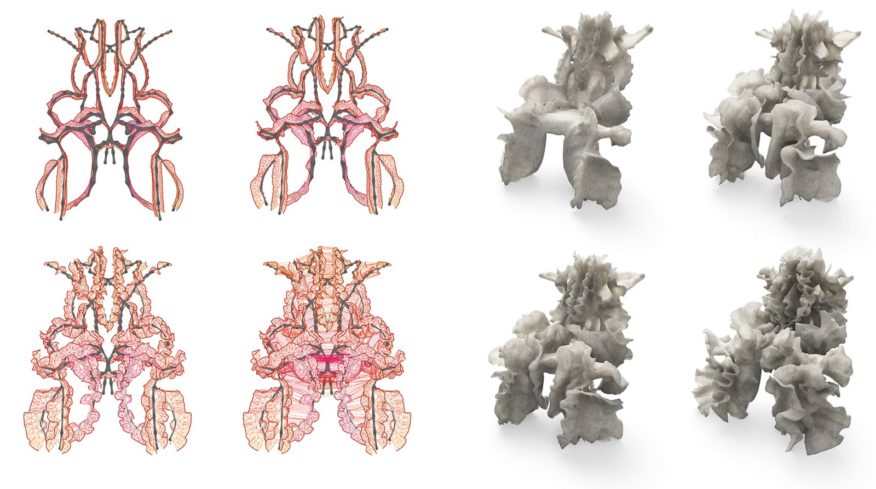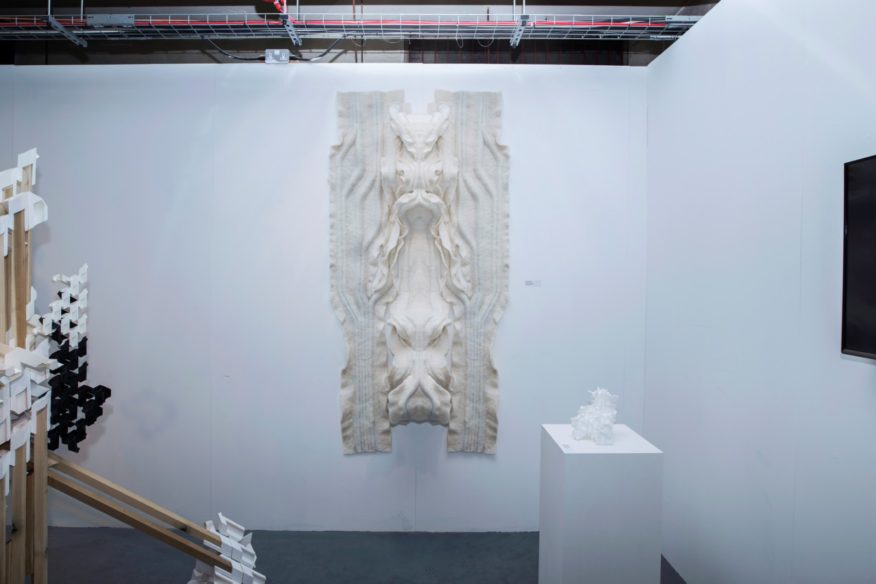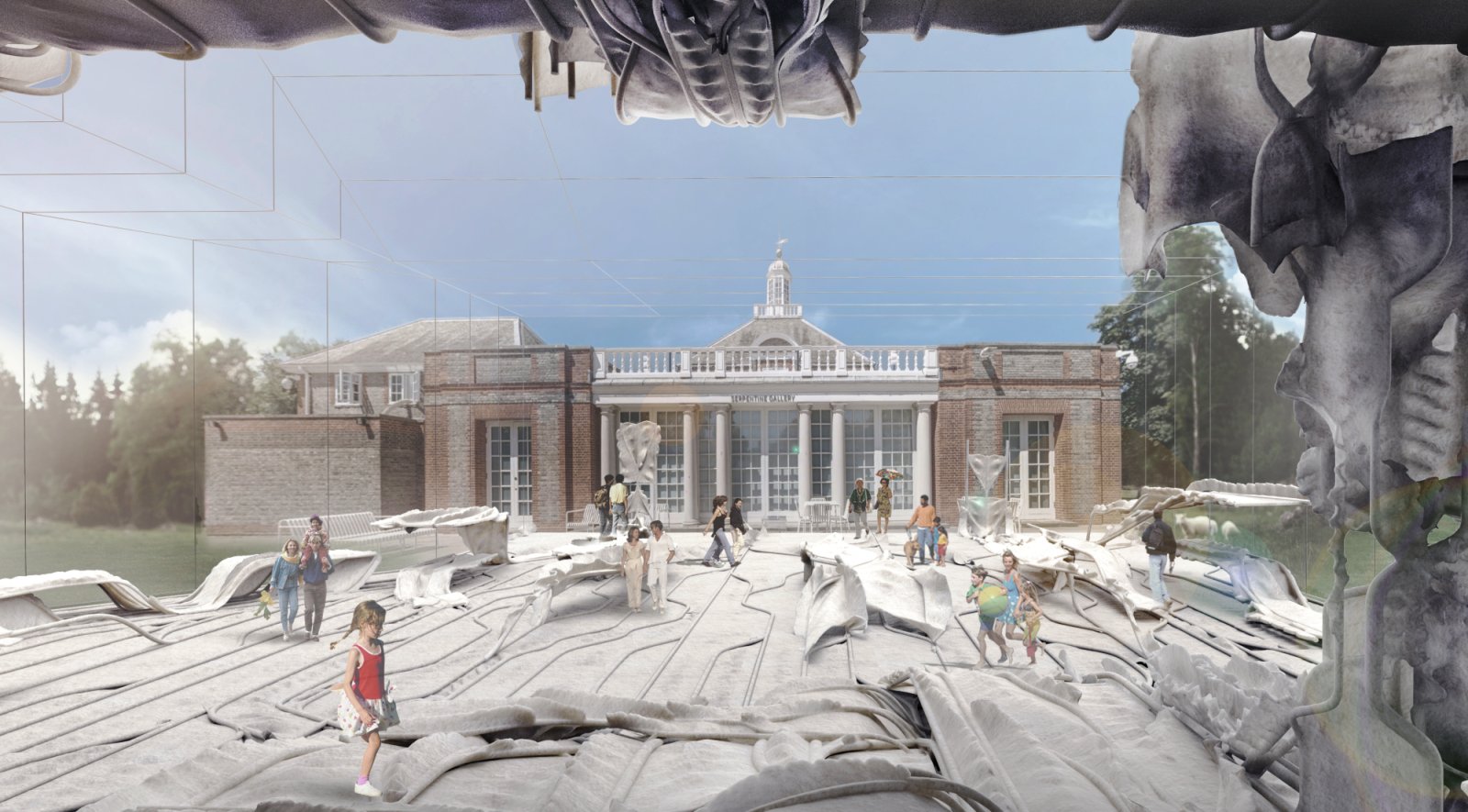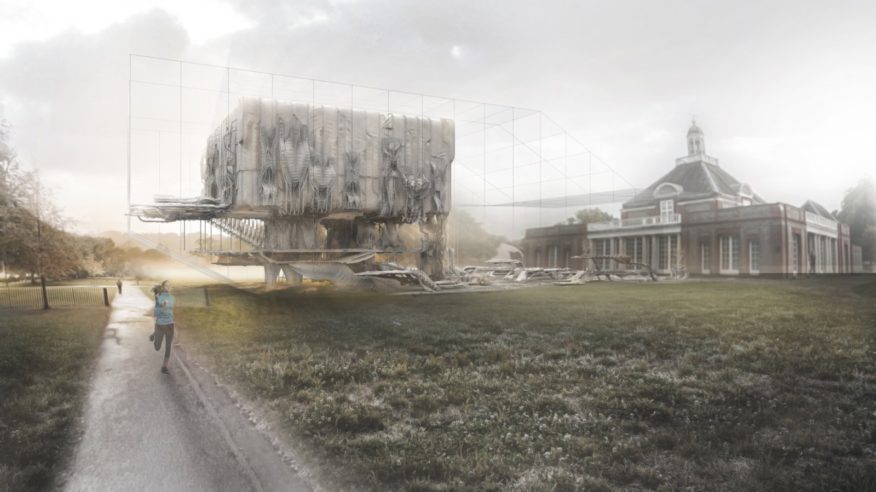
Inspired by the age-old craft of felt-making and differential growth found in nature, this project researches for the development of a new craft and material to produce innovative architectural structures at various scales.
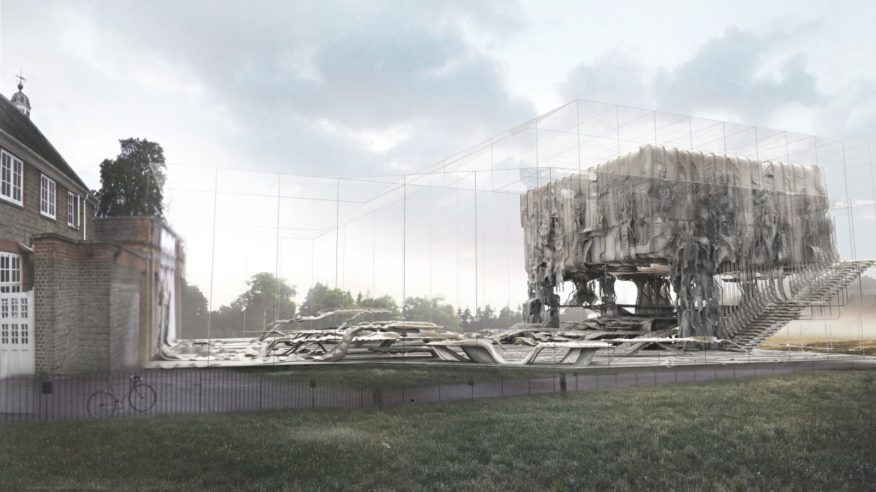
Flextiles focuses on introducing the potential of fibrous wool material as a new building block in architecture, for creating organic structures that smoothly transition from soft to hard textures per varying functions.

Incorporating robotic technology to needle felt and interlock the fibers into felt fabric sheets, a designed layout of inbuilt tubular patterns was injected with expandable foam to create a self-supporting, light-weight textile composite.
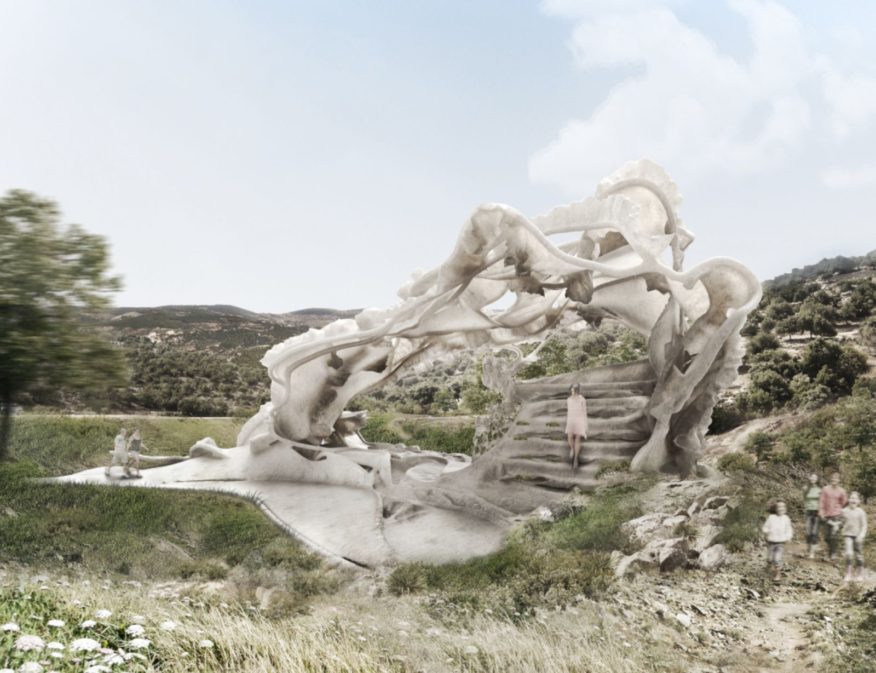
Utilizing this crafting technique, architectural elements on different scales were built to evolve a material specific design language and create an innovative system inspired by the natural properties of felt fibers.

The design process begins with the intricate formation of patterns varying in thicknesses and layering, specifically depending on light porosity and structural performance.

Exploring these design constraints, the material design was embedded into an innovative cladding system with varying surface treatments according to function and spatial experience. The material system naturally controls light filtration, sound levels, and overall atmosphere, creating a new typology of spaces in architecture.

Unlike traditional uses of fabric in construction, this technology introduces a new perspective on how to integrate structure into a soft material such as fabric and go beyond the typical disintegration between the draping of fabric onto a completely segregated support.

By taking advantage of the hidden potentials of customizing textiles to increase overall performance and structural ability, such a flexible material composite can create self-standing, light weight structures that redefine the use of fabric in architecture as a whole. Souece and images Courtesy of Daniel Widrig.Source and Images Courtesy of Daniel Widrig.
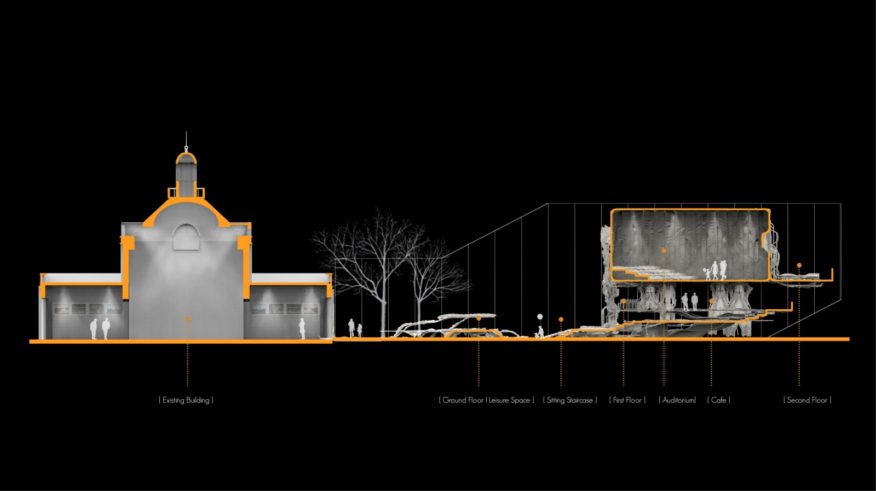
- University: The Bartlett School of Architecture
- Tutors: Daniel Widrig with Stefan Bassing, Soomeen Hahm, Igor Pantic
- Students: Hameda Janahi, Minzi Jin, Noura Mhied, Zuokai Hu
- Images: Hameda Janahi, Minzi Jin, Noura Mhied, Zuokai Hu, Courtesy of Daniel Widrig
